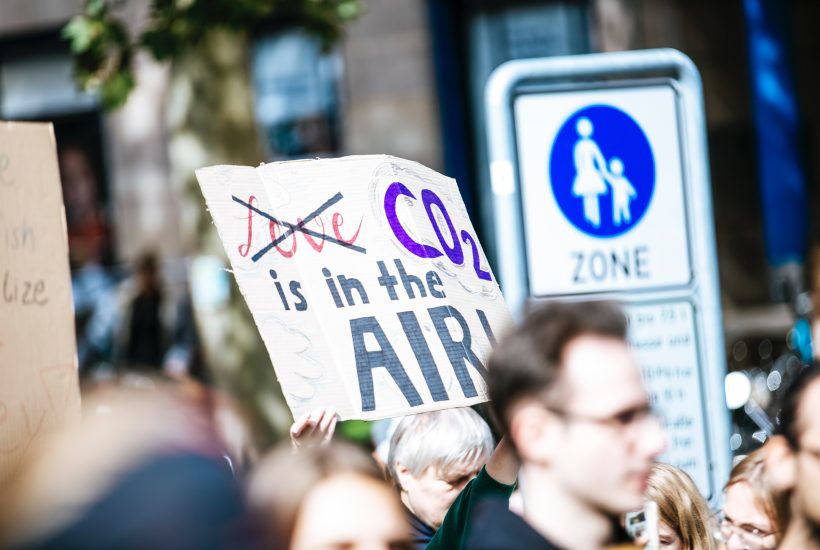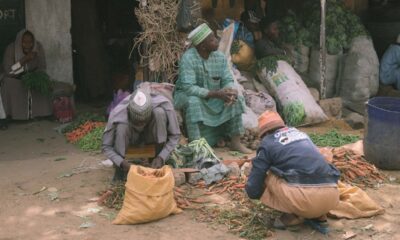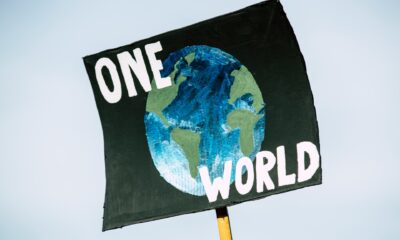Africa
The Document of the 2050 Vision of Low Carbon Development in Burkina Was Validated
The validation workshop of the document of the vision 2050 of low carbon and climate resilient development of Burkina Faso marks an important step in a process started in 2021. According to the GGGI country representative Laura Jalasjoki, Burkina Faso, like other African countries, is not a major emitter of greenhouse gases. The African continent emits only 3% of the world’s climate emissions.

In March 2021, the Burkina Faso government, represented by the Ministry in charge of the environment, signed a memorandum of understanding with the Global Green Growth Institute (GGGI) and the French Development Agency for the formulation of a long-term (2050 horizon) low-carbon and climate-resilient development strategy for Burkina Faso.
The development of this low-carbon strategy is in line with the Paris Agreement, which calls on States Parties to produce this type of reference framework, in order to provide a roadmap for long-term decarbonization, up to 2050.
Through this strategy, the aim is to strengthen the capacity of the Burkinabe government to plan the decarbonization of its economy in the long term by providing a framework and a pathway for a gradual revision and strengthening of the objectives of its Nationally Determined Contribution (NDC) to reduce CO2 emissions until 2050. After a process that went through several phases, Burkina Faso’s low-carbon development vision 2050 strategy was validated during the workshop that ended on December 16th, 2022.
Read more on teh suject and fidnthe most important economic news of teh day with the Born2Invest mobile app.
The Minister in charge of the Environment was pleased with the validation of the Vision 2059 document
According to the GGGI country representative Laura Jalasjoki, Burkina Faso, like other African countries, is not a major emitter of greenhouse gases. The African continent emits only 3% of the world’s climate emissions. However, it is the continent that pays the heaviest price in terms of the negative effects of climate change. “Adaptation capacity and resilience to climate change should therefore be of primary importance for Burkina Faso. The GGGI in accompanying the government in the development of this vision took this into account in the analysis and modeling that formed the basis of the vision. The adaptation measures identified in the 2050 vision can greatly contribute to limiting the impacts of climate change and improving the resilience of the sector,” she said.
According to Ms. Jalasjoki, the GGGI also has the mandate to mobilize resources and green investments for its member states. She said that the financing plan is a key element of the low-carbon vision and the GGGI is strongly committed to working towards the realization of this plan. That is why she assures that, starting in 2023, the GGGI’s interventions in Burkina Faso will focus on four programmatic solutions related to green investment, climate action, climate resilient agriculture, and renewable energy.
The Minister in charge of the Environment welcomed the validation of the Vision 2059 document
“This strategic document is now the reference document describing the decarbonization paths for Burkina Faso until 2050. But a vision or a strategy is useless if it is not implemented. Now that the vision has been validated, I would like to invite all stakeholders and all the country’s technical and financial partners to move forward with the priority actions identified: increasing the share of renewable energy in the country’s energy mix, introducing sustainable agricultural and livestock practices, strongly promoting forestation, reforestation and recovery of degraded land, improving waste management and the circular economy, and energy efficiency measures in industries, etc.,” he said.
An opinion shared by the Minister of Environment, Water and Sanitation Augustin Kaboré. While congratulating all the actors who have worked to achieve the process, he also invited technical and financial partners to accompany Burkina Faso in the implementation of Vision 2050.
With the validation of the Vision 2050 strategy document, Burkina Faso becomes one of the few African countries, according to the Minister, to have such a development instrument.
__
(Featured image by Markus Spiske via Unsplash)
DISCLAIMER: This article was written by a third party contributor and does not reflect the opinion of Born2Invest, its management, staff or its associates. Please review our disclaimer for more information.
This article may include forward-looking statements. These forward-looking statements generally are identified by the words “believe,” “project,” “estimate,” “become,” “plan,” “will,” and similar expressions. These forward-looking statements involve known and unknown risks as well as uncertainties, including those discussed in the following cautionary statements and elsewhere in this article and on this site. Although the Company may believe that its expectations are based on reasonable assumptions, the actual results that the Company may achieve may differ materially from any forward-looking statements, which reflect the opinions of the management of the Company only as of the date hereof. Additionally, please make sure to read these important disclosures.
First published in lefaso.net, a third-party contributor translated and adapted the article from the original. In case of discrepancy, the original will prevail.
Although we made reasonable efforts to provide accurate translations, some parts may be incorrect. Born2Invest assumes no responsibility for errors, omissions or ambiguities in the translations provided on this website. Any person or entity relying on translated content does so at their own risk. Born2Invest is not responsible for losses caused by such reliance on the accuracy or reliability of translated information. If you wish to report an error or inaccuracy in the translation, we encourage you to contact us.

-

 Crypto1 week ago
Crypto1 week agoBitcoin Wavers Below $70K as Crypto Market Struggles for Momentum
-

 Markets2 weeks ago
Markets2 weeks agoSilver Dips Sharply, While Gold Gains Amid Mixed Stock Market
-

 Africa5 days ago
Africa5 days agoMorocco’s Tax Reforms Show Tangible Results
-

 Africa2 weeks ago
Africa2 weeks agoTunisia Holds Interest Rate as Inflation Eases, Debate Grows

























